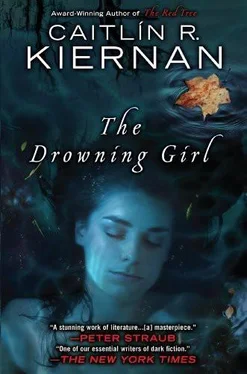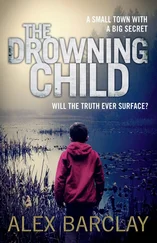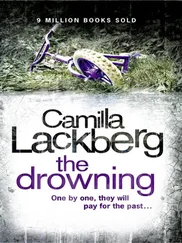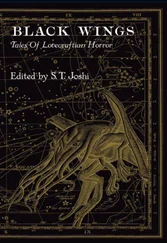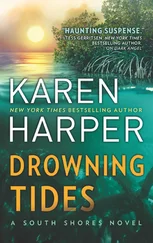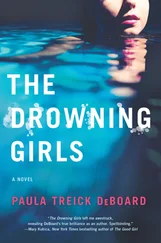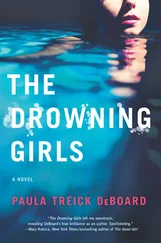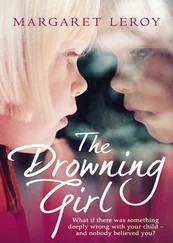Caitlín Kiernan - The Drowning Girl
Здесь есть возможность читать онлайн «Caitlín Kiernan - The Drowning Girl» весь текст электронной книги совершенно бесплатно (целиком полную версию без сокращений). В некоторых случаях можно слушать аудио, скачать через торрент в формате fb2 и присутствует краткое содержание. Год выпуска: 2012, ISBN: 2012, Издательство: Roc / New American Library, Жанр: Фэнтези, на английском языке. Описание произведения, (предисловие) а так же отзывы посетителей доступны на портале библиотеки ЛибКат.
- Название:The Drowning Girl
- Автор:
- Издательство:Roc / New American Library
- Жанр:
- Год:2012
- ISBN:978-0-451-46416-3
- Рейтинг книги:5 / 5. Голосов: 1
-
Избранное:Добавить в избранное
- Отзывы:
-
Ваша оценка:
- 100
- 1
- 2
- 3
- 4
- 5
The Drowning Girl: краткое содержание, описание и аннотация
Предлагаем к чтению аннотацию, описание, краткое содержание или предисловие (зависит от того, что написал сам автор книги «The Drowning Girl»). Если вы не нашли необходимую информацию о книге — напишите в комментариях, мы постараемся отыскать её.
The Drowning Girl — читать онлайн бесплатно полную книгу (весь текст) целиком
Ниже представлен текст книги, разбитый по страницам. Система сохранения места последней прочитанной страницы, позволяет с удобством читать онлайн бесплатно книгу «The Drowning Girl», без необходимости каждый раз заново искать на чём Вы остановились. Поставьте закладку, и сможете в любой момент перейти на страницу, на которой закончили чтение.
Интервал:
Закладка:
That day I bought apples and tomatoes, and when I had, Abalyn and I sat on a bench beneath the trees and each ate one of the apples, which were just the right blend of tart and sweet. The next day, I used the rest to bake a pie.
“Want to hear something creepy?” I asked, when I was done with my apple and had tossed the core away for the squirrels and birds.
“Depends,” she said. “Is this where you tell me you’re an axe murderer or into furries or that sort of creepy?”
I had to ask her what furries were.
“No. It’s something I saw about a year back, something I saw here in the park.”
“Then sure,” she said. “Tell me something creepy.” She was eating her apple much more slowly than I had (I often eat too fast), and she took another bite.
“I was driving home from work one night. Usually, I take the bus, right? But that day, I drove because, well, I don’t know, I just felt like driving. On my way home that evening, passing by the park, I saw four people walking along together. They were away from the streetlamps and under the trees, where it was the darkest, but I still saw them pretty clearly. When I first spotted them, I thought they were nuns, which was strange enough. You never see nuns around here. But then they didn’t seem like nuns anymore.”
“Nuns are creepy enough,” Abalyn muttered around a bite of her apple. “Nuns freak me out.”
“I saw that they weren’t wearing habits, but long black cloaks, with hoods that covered their heads. Suddenly, I wasn’t even sure they were women. They might just as well have been men, from all I could make out of them. And then—and yeah, I know how this sounds—and then I fancied they weren’t even people.”
“You fancied ? No one actually says they fancied .”
“Language is a poor enough means of communication as it is,” I told her. “So we should use all the words we have.” It wasn’t really an original thought; I was paraphrasing Spencer Tracy from Inherit the Wind .
She shrugged, said, “So the nuns who weren’t nuns might not even have been people. Go on,” and took another bite of her apple.
“I didn’t say for sure that they weren’t people. But for a moment they seemed more like ravens trying very hard to look like people. Maybe trying too hard, and because they were so self-conscious, I could see that they were actually ravens.”
Abalyn chewed her apple and watched me. By then, she already knew why I take the pills I take. She’d seen all the prescription bottles on my nightstand, and I’d told her some stuff. Not everything. Not anything about Caroline or my mother, but I’d told her enough that she understood about the state of my mental health (a phrase Dr. Ogilvy does approve of). Still, that day, she didn’t say she thought I was nuts. I’d expected her to, but she didn’t. She just ate her apple and considered me with those blue-green beach-glass eyes of hers.
“Sure, I know they weren’t ravens, of course. I don’t know why it seemed that way. I think they might have been Wiccans. There are a few witches around here, I suspect. Maybe they were on their way to a ritual or witches’ sabbat or potluck or whatever it is Wiccans do when they get together.”
“Frankly, it’s a lot more interesting to imagine they were ravens trying too hard to pass themselves off as human beings,” Abalyn said. “It’s a lot creepier than if they’re just Wiccans. I’ve met witches, and, unlike nuns, they’re never creepy. They tend to be rather humdrum, in fact.” She finished her apple and tossed the core so that it landed in the grass near mine.
“Whatever they were, they gave me the willies.”
“Gave you the willies ?” she asked, smiling. “No one actually says that, you know.”
“I do,” I replied, and flicked her lightly, playfully, on the left shoulder, as I was sitting on her left. She pretended that it had hurt and made faces. I continued, “They gave me the willies, and I went home and locked my doors and slept with all the lights burning that night. But I didn’t have bad dreams. I looked for them again the next night, and the night after that, but I haven’t ever seen them again.”
“Were you homeschooled?” she asked me, which annoyed me since it had nothing to do with what I’d seen that night in the park.
“Why?”
“If you were, it might explain why you use old-fashioned words like fancied and willies .”
“I wasn’t,” I said. “I went to public schools, here in Providence and in Cranston. I hated it, usually, and I wasn’t a very good student. I barely made it through my senior year, and it’s a miracle I graduated.”
Abalyn said, “I hated high school, for reasons that ought to be obvious, but was a pretty good student. Had it not been for most of the other students, I might have loved it. But I did well. I aced my SATs, even got a partial scholarship to MIT.”
“You went to MIT?”
“No. I went to the University of Rhode Island, down in Kingston—”
“I know where URI is.”
“—because the scholarship was only a partial scholarship, and my folks didn’t have the rest of the money.”
She shrugged again. It used to irritate me, the way Abalyn was always shrugging. Like she was indifferent, or stuff didn’t get to her, when I knew damned well it did. She’d wanted to attend MIT and study computer science and artificial intelligence, but instead she’d gone to URI and studied bioinformatics, which she explained was a new branch of information technology (she said “IT”) that tries to visually analyze very large sets of biological data—she gave DNA microarrays and sequences as examples. I was never any good with biology, but I looked this stuff up. Bioinformatics, I mean.
I stared at the ground a moment, at my feet. “There must be good money in that,” I said. “But, instead, you write reviews of video games for not much money at all.”
“I do something I’m passionate about, like you and painting. I was never passionate about bioinformatics. It was just something to do, so I could say I went to college. It meant a lot to me, and more to my parents, because neither of them had.”
Katharine Hepburn said something like, “Do what interests you, and at least one person is happy.”
There was a breeze then, a warm breeze that smelled like freshly mowed lawns and hot asphalt, and I suggested we should head back. Abalyn caught me peering at the place beneath the chestnuts and oaks where I’d seen the not-nuns, not-raven people, and she leaned over and kissed me on the right temple. It was confusing, because the kiss made me feel safe, but letting my eyes linger at the spot below the trees, that sent a shudder through me.
“Hey, Imp,” she said. “Now I owe you one.”
“How do you mean?” I said, standing, straightening my shirt, smoothing out the wrinkles. “What do you owe me?”
“Tit for tat. You told me a creepy story, now I owe you one. Not right now, but later. I’ll tell you about the time me and some friends got stoned and broke into the old railroad tunnel beneath College Hill.”
“You don’t have to do that. You don’t owe me anything. It was just a story I’ve never told anyone else.”
“All the same,” she said, and then we walked back up Willow Street to the apartment. Just now, I almost typed “ my apartment,” but it was fast becoming our apartment. While I made dinner in the comfort of the butter-yellow kitchen, she played something noisy with lots of gunfire and car crashes.
If there are going to be chapters, this one ends here. I’ve been neglecting a painting, and I’ve got extra hours at work this week, so I may not get back to it—the ghost story—for a while, and the thought of leaving a chapter unfinished makes me uncomfortable.
Читать дальшеИнтервал:
Закладка:
Похожие книги на «The Drowning Girl»
Представляем Вашему вниманию похожие книги на «The Drowning Girl» списком для выбора. Мы отобрали схожую по названию и смыслу литературу в надежде предоставить читателям больше вариантов отыскать новые, интересные, ещё непрочитанные произведения.
Обсуждение, отзывы о книге «The Drowning Girl» и просто собственные мнения читателей. Оставьте ваши комментарии, напишите, что Вы думаете о произведении, его смысле или главных героях. Укажите что конкретно понравилось, а что нет, и почему Вы так считаете.
